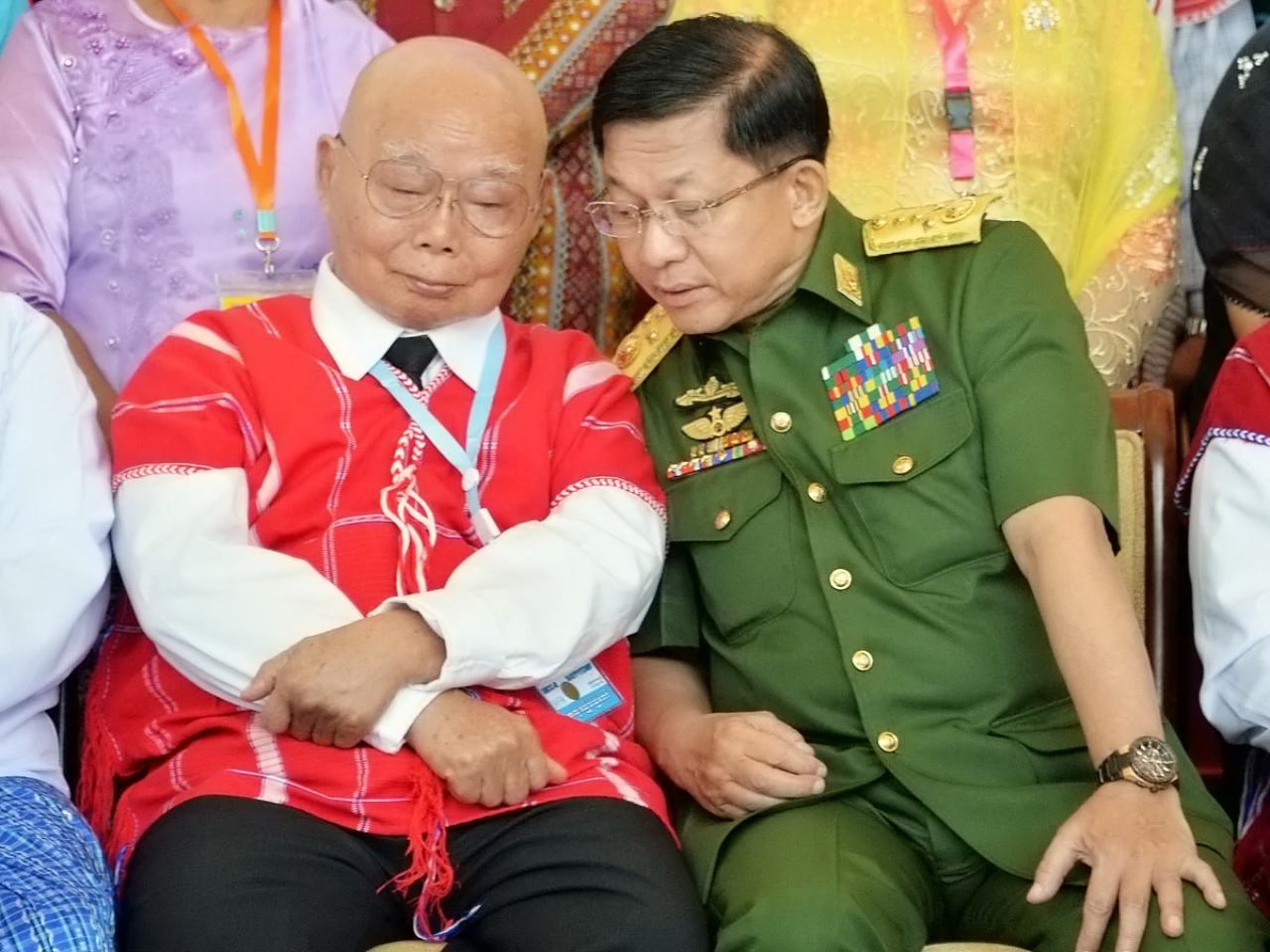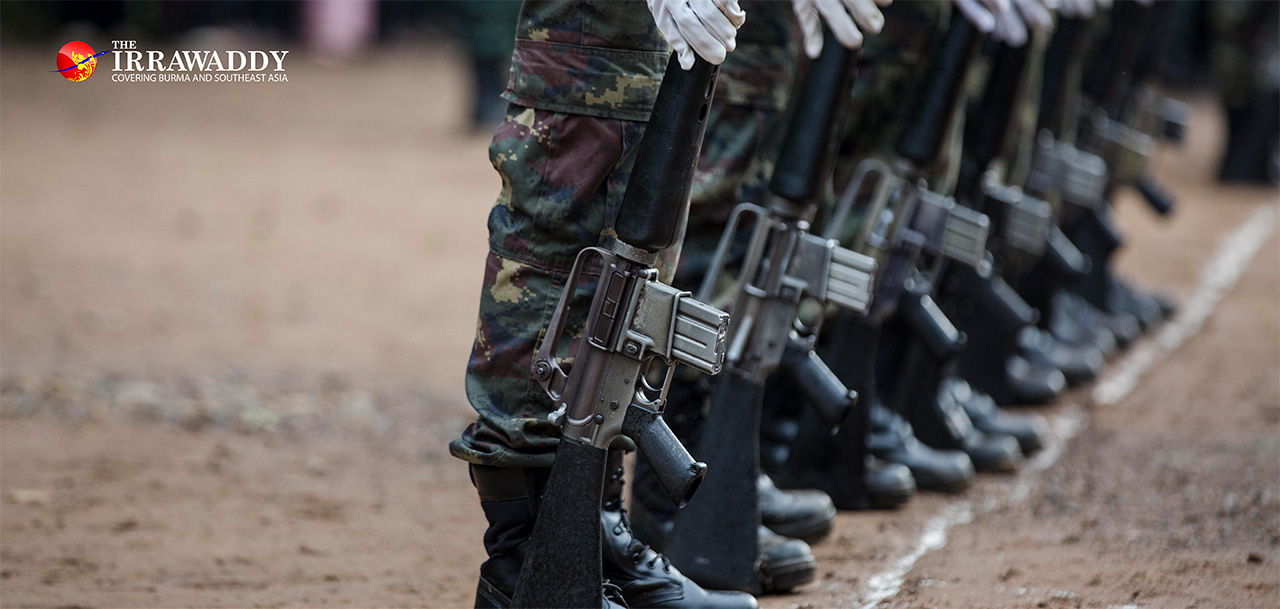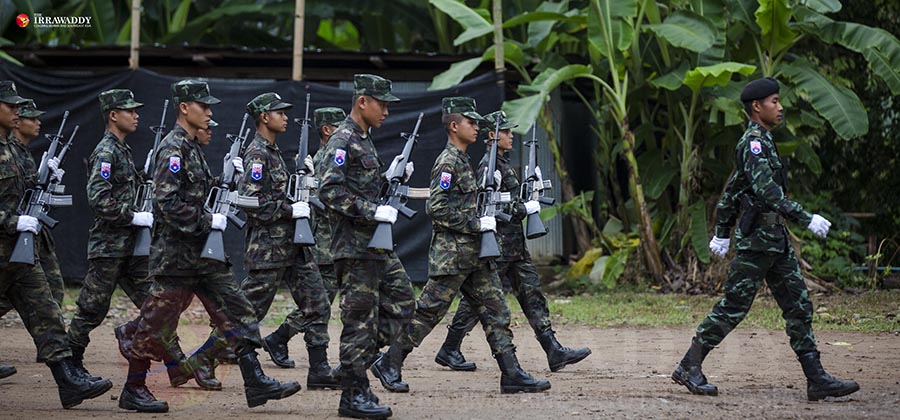The Karen National Union (KNU), the most powerful ethnic armed organization (EAO) in Myanmar, held its 17th congress in secrecy early this month, electing new leadership after a two-year delay due to the COVID-19 pandemic and the military coup.
With 91-year-old Mutu Say Poe having stepped down on health grounds, former vice chairman Padoh Saw Kwe Htoo Win was elected to succeed him as KNU chairman.

Elections were also held to fill other key positions, including vice chairman, three secretaries, chief justice, and the heads of the KNU’s 12 departments, in the first week of May.
In a May 5 statement issued after the congress, the armed group vowed to continue to fight for equality and a federal, democratic Union.
Growing tensions with junta
In its statement, the KNU Congress vowed to “fight racial chauvinism and military dictatorship, establish federal democracy, and work together with the people of the entire Karen nation for equality and self-determination.”
It also vowed to collaborate with ethnic armed revolutionary organizations, pro-democracy forces, and people from different walks of life that are fighting chauvinism and military dictatorship and for the cause of democracy, equality and self-determination, and the establishment of a federal, democratic Union.
The military regime denounced the KNU statement. On May 10, the junta’s National Solidarity and Peace Negotiation Committee said the KNU’s statement was counter to the Nationwide Ceasefire Agreement (NCA) and would result in confrontation. It insisted the NCA is the only path to peace and stability.
The KNU signed the NCA under U Thein Sein’s quasi-civilian government, and actively engaged in the peace process until the 2021 military coup, but since then it has provided shelter and training for those who have decided to take up arms against the Myanmar military.
Along with other EAOs including the Kachin Independence Army, Karenni Army, Chin National Front and All Burma Students Democratic Front, the KNU has rejected the junta’s peace overtures and has been fighting alongside resistance forces collectively known as the People’s Defense Force (PDF), which operates as the army of the parallel National Unity Government (KNU).
A high-ranking KNU official said the stance presented in the statement following the 17th congress was nothing new, and continued the armed organization’s long-standing policy, adding that the new leadership was unlikely to engage in talks with the Myanmar military regime.
“The majority of the [new] leadership are middle-aged people. They are active and enthusiastic. The regime has invited the KNU to many of its ceremonies. The KNU has a policy of not holding talks with military dictators. [KNU spokesman] Padoh Saw Taw Nee has also said we have nothing to talk with the military about, and will only talk with an elected civilian government,” he said.
External, internal pressures
The 17th congress was repeatedly postponed for fear of junta air attacks since the coup. Attendees were kept in suspense throughout the congress as junta aircraft were spotted frequently over KNU territory, according to KNU sources.
Junta troops and KNU-led allied forces clashed in territories controlled by the KNU’s brigades 1, 3, 5 and 6 during the congress.

As of December 2022, a total of 365,178 people had been affected by junta air and artillery attacks and by clashes on the ground, according to a report by the KNU’s human rights committee and research section. Combined with people already displaced by previous fighting, the displaced population totaled some 500,000 in KNU territories.
The 17th congress drew widespread attention as the KNU’s Central Executive Committee was under pressure due to the alleged involvement of KNU commanders in KK Park, a crime hub on the Thai border.
Karen civil society organizations around the world even demanded the resignation of the entire Central Executive Committee for failing to punish certain KNU leaders involved in KK Park. Notorious as a hub of human trafficking and online scams, the China-backed so-called new city project is located near the village of Maw Hto Talay in an area controlled by KNU Brigade 6 in the north of Myawaddy Township.
KNU Brigade 2 and Brigade 5 didn’t participate in the voting to choose the new leadership and did not put up any candidates.
Brigade 5 has called on the new leadership to punish senior KNU members who violated the organization’s rules and regulations, and to crush all illegal businesses in Kawthoolei, as the KNU’s territory is known in the Karen language.
The committee said it would probe allegations of KNU leaders’ involvement in KK Park.
It appears that how leaders of the KNU central body handle the internal problems will affect the relationship between KNU headquarters and brigades 2 and 5.
New chairman
Former vice chairman Padoh Kwe Htoo Win was elected the 10th chair of the KNU. An alumnus of Yangon’s University of Economics, he served as the KNU Brigade 4 chairman from 1990 to 2012 and was elected general secretary of the KNU at the 15th congress.
As the KNU general secretary, he attended the signing of the NCA between U Thein Sein’s quasi-civilian government and the KNU in October 2015. He was elected vice chairman at the organization’s 16th congress in 2017.
Following his election, the Myanmar military regime has carried out a number of operations probably intended to test how he will conduct himself as the new KNU leader.
On May 14, around 50 junta troops arrested the younger brother and nephew of KNU vice chair Padoh Hser Gay in Bago Region’s Kyaukkyi Township. The two were released the following day.
Kyaukkyi in Nyaunglebin District, where the KNU Brigade 3 is based, is a conflict zone where junta troops and KNU-led allied forces are currently fighting.
Junta troops also killed 20 residents, including 11 women and four children, from Nyaungbinthar Village in Nyaunglebin’s Mone Township by setting fire to them.
Intensified clashes ahead?
Over the past four months, during the country’s hot season, there were 1,642 clashes between the two sides in areas controlled by the KNU. PDF groups fought alongside the KNU in those clashes.

Around 1,700 junta soldiers were killed in the period, according to the KNU, but The Irrawaddy could not independently verify the junta casualties. The KNU said it suffered 59 fatalities with around 200 others injured.
A source close to the KNU said it is difficult to predict whether clashes will intensify in the rainy season, which begins in June, because the regime tends to conduct more air and artillery attacks during the rainy season.
“What is good about the KNU is it has a policy of collective leadership,” said an observer of Karen politics based on the border. “Half of the new leadership are middle-aged persons. We will wait and see their political acumen, and if they can provide checks and balances on the chairman,” added the observer.

















